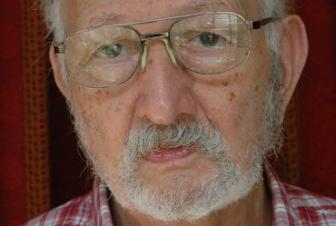Article
What is good poetry?

January 18, 2006
Poetry in the past used to serve those practical purposes first and foremost, and exaltation, until the Romantic era, used to be the province of religious verse. Is this what lies behind the difference between the conceptions of poetry held by modern Westerners on the one hand and traditional Easterners and Southerners on the other? Westerners of a rational persuasion prefer their poetry to be art for art’s sake; any living poet writing verse for some extra-poetic purpose may be credited with some professional skill, but he could hardly be rated an artist. Poets in more traditional cultures would be found lacking in community spirit if they wrote poetry just for poetry’s sake. Can poets afford to stay aloof from their community’s fortunes? Do those who have the gift of the word not bear a responsibility towards their family, tribe, nation in need? Or to speak in terms of modern Western man, shouldn’t they be socially and politically committed? Isn’t that what their countrymen would expect of them, worse, what Westerners in the security of their liberal democracies do expect of them and revere them for, more than for the intrinsic quality of their work? Would we have known about some of the Russian, Polish, Chinese or African poets if they had not been martyrs for their cause? And was not social and political commitment part of the social mores taught by the young western revolutionaries of the late 1960s? Am I, a product of Western liberal democracy, at all sincere in my appreciation of what good poetry is, or bad? For a further account of the round-table discussion, click on the subjects below.
Can poetry be political?
Poetry: a bad influence?
Is popularity the mark of bad poetry?
Poetry and the internet
Participants
Poets, poetry editors and publishers from ten countries and four continents gathered in Rotterdam, June 2002, as the guests of the annual Poetry International Festival, to discuss the final details of Poetry International Web. Ko Kooman gives a personal account of the ensuing discussion on what makes good poetry.
What is good poetry? Is it something two cuts higher than ordinary human handiwork? Is it more than the fruit of human industry, inspired by human thought and shaped by human skill? Is there a higher principle involved? A muse, a supreme being? What do we mean when we speak of “inspiration”? Is inspiration, and the encompassing idea of the artistic, all that is left of the religious consciousness of modern man? Is it the last thing we can cling to in our search for some tangible proof of something we still believe to be “out there”, rather than the absolute void we find so hard to face? Should poetry, therefore, be this absolutely free-floating medium that does not serve any practical purpose — information, education, exhortation, entertainment, or any other use it had in the past — except that of exaltation, a last attempt on our part at reaching beyond our reach?Poetry in the past used to serve those practical purposes first and foremost, and exaltation, until the Romantic era, used to be the province of religious verse. Is this what lies behind the difference between the conceptions of poetry held by modern Westerners on the one hand and traditional Easterners and Southerners on the other? Westerners of a rational persuasion prefer their poetry to be art for art’s sake; any living poet writing verse for some extra-poetic purpose may be credited with some professional skill, but he could hardly be rated an artist. Poets in more traditional cultures would be found lacking in community spirit if they wrote poetry just for poetry’s sake. Can poets afford to stay aloof from their community’s fortunes? Do those who have the gift of the word not bear a responsibility towards their family, tribe, nation in need? Or to speak in terms of modern Western man, shouldn’t they be socially and politically committed? Isn’t that what their countrymen would expect of them, worse, what Westerners in the security of their liberal democracies do expect of them and revere them for, more than for the intrinsic quality of their work? Would we have known about some of the Russian, Polish, Chinese or African poets if they had not been martyrs for their cause? And was not social and political commitment part of the social mores taught by the young western revolutionaries of the late 1960s? Am I, a product of Western liberal democracy, at all sincere in my appreciation of what good poetry is, or bad? For a further account of the round-table discussion, click on the subjects below.
Can poetry be political?
Poetry: a bad influence?
Is popularity the mark of bad poetry?
Poetry and the internet
Participants
© Ko Kooman
Sponsors















